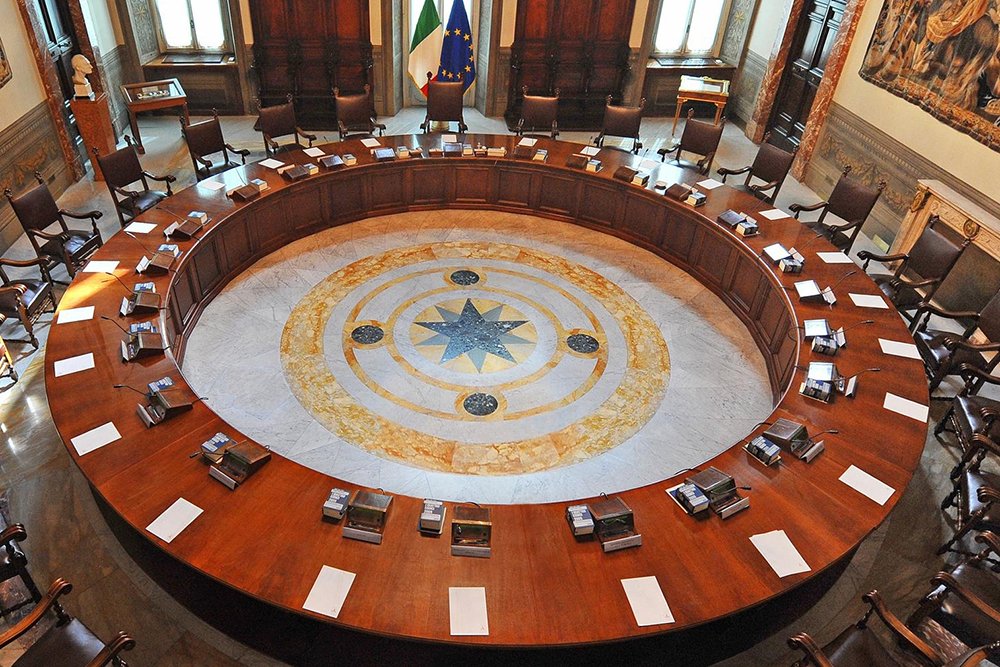
Italy, a nation steeped in history, culture, and politics, has a unique system of governance that plays a pivotal role in shaping its destiny. At the heart of this intricate political machinery lies the Office of the Italian Prime Minister, which serves as the epicenter of the country's executive branch. In this comprehensive article, we delve deep into the significance, functions, and historical evolution of this crucial institution, shedding light on its profound impact on Italian politics.
The Italian Prime Minister's office, often referred to as "Palazzo Chigi," named after its location in Rome, is a symbol of executive power and authority in Italy. This institution, integral to the nation's political structure, plays a crucial role in shaping and implementing policies, both domestically and internationally. Let's embark on a journey to explore the multifaceted aspects of the Office of the Italian Prime Minister.
The roots of the Italian Prime Minister's office can be traced back to the formation of the Kingdom of Italy in 1861. However, it wasn't until the enactment of the Italian Constitution in 1948 that the office took on its current form. The Constitution established a parliamentary republic and provided the legal framework for the executive branch, including the Prime Minister's role.
The position of Prime Minister is closely tied to the Parliament. The Prime Minister is usually the leader of the political party or coalition that has the most seats in the Chamber of Deputies, the lower house of Parliament. This connection between the Prime Minister and Parliament reflects the principles of representative democracy, as the Prime Minister is accountable to the legislature.
The Office of the Italian Prime Minister is a position of great responsibility, with diverse roles and functions. Some of the key responsibilities of the Italian Prime Minister include:
The Italian Prime Minister is the head of the government, responsible for overseeing the executive branch's day-to-day operations. This includes formulating policies, making important decisions, and ensuring the implementation of government initiatives.
The Prime Minister represents Italy on the international stage. They engage in diplomatic activities, negotiate treaties, and foster international relationships to promote Italy's interests globally.
Although the Prime Minister doesn't have the same legislative powers as the Parliament, they play a crucial role in the legislative process. They can propose bills, and their government's agenda heavily influences the legislative priorities.
The Prime Minister is also responsible for national security and defense matters. They work closely with the military and security agencies to safeguard Italy's interests and protect its citizens.
Managing Italy's economy is a significant aspect of the Prime Minister's role. They work on economic policies, budgets, and initiatives to ensure the country's financial stability and growth.
In times of crisis, whether natural disasters, economic downturns, or emergencies, the Prime Minister plays a critical role in coordinating government responses and providing leadership.
The Prime Minister has the authority to recommend the appointment of ministers, who are responsible for various government departments and ministries.
While the President of Italy is the head of state and has a largely ceremonial role, the Prime Minister is a key advisor to the President and offers insights on governance and policy matters.
The Italian Prime Minister wields significant influence in the country's political landscape. Here are some key aspects of their impact:
Italy's political system is characterized by coalition governments, where multiple parties join forces to secure a parliamentary majority. The Prime Minister, as the leader of the dominant coalition, often serves as a unifying figurehead, ensuring cooperation among the various parties.
The Prime Minister plays a pivotal role in maintaining the balance of power between the executive, legislative, and judicial branches of government. This balance is essential for the functioning of a healthy democracy.
The Prime Minister's office is the epicenter of policy formulation. The policies proposed and implemented by the government directly impact the lives of Italian citizens, making the Prime Minister a central figure in shaping the country's future.
On the international stage, the Italian Prime Minister is a key player in shaping Italy's foreign policy. They represent the nation in international forums, negotiate treaties, and influence Italy's standing in the global community.
The Prime Minister's economic policies and decisions have a direct bearing on Italy's economic stability and growth. Their management of fiscal policies, trade agreements, and economic reforms can have far-reaching consequences.
Throughout Italy's history as a republic, several Prime Ministers have left their mark on the nation's politics and society. Some notable figures include:
As Italy's first Prime Minister after World War II, De Gasperi played a crucial role in rebuilding the country and establishing a democratic republic.
One of Italy's longest-serving Prime Ministers, Andreotti navigated the complexities of Italian politics, contributing to the stability of the nation.
A charismatic figure in Italian politics, Berlusconi served multiple terms as Prime Minister and had a significant influence on the country's political landscape.
Renzi's tenure as Prime Minister saw significant reforms in Italian politics and governance, including changes to the electoral system.
Mario Draghi 's leadership during the COVID-19 pandemic was closely watched both domestically and internationally.
The Office of the Italian Prime Minister is an indispensable institution in Italy's political landscape. With a rich history, diverse roles, and significant influence, the Prime Minister holds a unique position as the head of government and chief diplomat. Their responsibilities encompass domestic governance, international relations, and economic stewardship. As Italy continues to evolve and face new challenges, the role of the Prime Minister remains central to the nation's progress and prosperity, making it a key player on the global stage. Understanding the Office of the Italian Prime Minister is essential for comprehending the intricacies of Italian politics and governance, and its impact resonates far beyond the borders of the country.

More Details